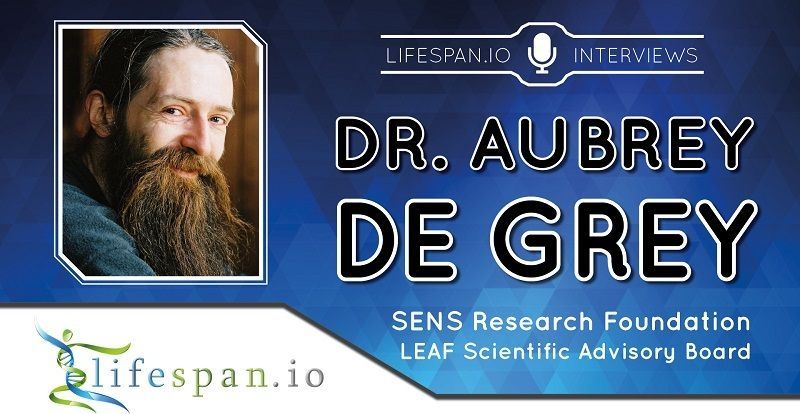In November, Dr. Aubrey de Grey, a graduate of the University of Cambridge, was in Spain to attend the Longevity World Forum in the city of Valencia, and he gave a press conference organized by his friend, MIT engineer José Luis Cordeiro.
Dr. Aubrey de Grey is the scientific director (CSO) and founder of the SENS Research Foundation. In Madrid and Valencia, Dr. de Grey reaffirmed for Tendencias21 one of his most striking statements of 2018: “In the future, there will be many different medicines to reverse aging. In five years, we will have many of them working in early clinical trials.”
The Longevity World Forum is a congress on longevity and genomics in Europe. It is heir to the first congress in Spain, the International Longevity and Cryopreservation Summit, which was held at the CSIC headquarters in Madrid in May 2017, and Dr. de Grey also participated in that event. In Valencia, his presentation was recieved with interest, and Dr. de Grey explained to this select audience that aging will be treated as a medical problem in the near future. Rather than treating its symptoms using the infectious disease model, the root causes of aging will themselves be treated.









